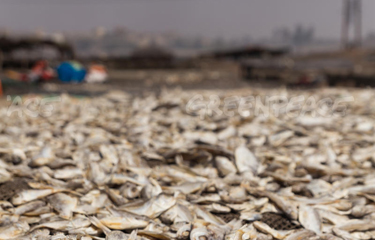The expansion of Chinese and European fishmeal processing operations in West Africa has been questioned in a new report from the Food and Agricultural Organization of the United Nations.
The report, “Socio-Economic And Biological Impacts Of The Fish-Based Feed Industry For Sub-Saharan Africa,” states the sector is posing a risk to regional food security and provides little socio-economic benefit.
The report suggests the fishmeal and fish oil industry in West Africa is having a “considerable negative impact” and concludes that, across the region, the industry has contributed to the overexploitation of numerous fish species that local communities depend on, and that consequently it threatens their food security and jobs, while its social benefits remain limited.
The report was welcomed by campaign groups, including Greenpeace Africa, which have previously called out overfishing and illegal fishing by foreign vessels operating in West Africa.
“In Senegal, for instance, the gap between supply and demand for fish will hit 150,000 tonnes a year some time this decade, resulting in rocketing prices. And while, at the last count, fishmeal factories in Senegal employed only 129 permanent workers and 264 temporary workers, there are 600,000 workers in the artisanal fishing sector,” Greenpeace Africa said in a statement provided to SeafoodSource.
Greenpeace Africa Senior Oceans Campaigner Aliou Ba urged an end to new fishmeal permits in the region and a phasing-out of any existing plants using fish fit for human consumption.
“We are heading for disaster, and here is the proof. West African governments, the E.U., and China must act now. People here are facing [sky]rocketing food prices and devastating unemployment,” Ba said. “Our governments have created an economic model that benefits the wealthy in developed economies, rather than our own people. They need to change that now. Any kind of development should put the African people at its center. West African states should get rid of these destructive industries and take their responsibilities in order to preserve food security, jobs, and the well-being of the populations.”
Photo courtesy of Elodie Martial/Greenpeace







